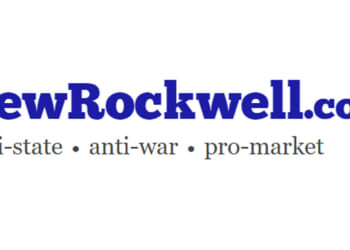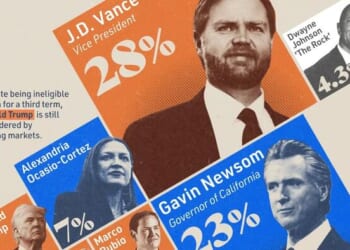History, it turns out, didn’t end for Big Tech. Just a few years ago, antitrust revivalists saw Google-parent Alphabet, Amazon, Apple, Meta, and Microsoft as “forever companies”—vast, unassailable monopolies destined to rule the digital economy indefinitely by doing the same-old, same-old. So long, dynamic progress. Hello, sluggish stagnation.
That hot-take notion, so prevalent pre-pandemic, has aged badly. Artificial intelligence has turned even the supposedly fattest and happiest tech giants into AI-anxious spendthrifts.
Take Alphabet, which took plenty of flak for its control of the search engine market. Dominance, sure. But forever dominance?
OpenAI’s new AI-enabled Atlas browser directly threatens Google’s Chrome browser, as well as its search business, by replacing the URL bar with conversational AI. What Washington lawyers couldn’t do to Google, technological competition just might.
More broadly: Rather than resting on the “monopoly” rents from its ad business, the emergence of generative AI has Alphabet pouring cash into data centers and AI chips, spending nearly 60 percent of its operating cash flow on capital expenditures, according to Goldman Sachs. Alphabet’s share of the five AI hyperscalers’ (the cloud-computing giants building the world’s AI infrastructure—Amazon, Microsoft, Meta, Google, and Oracle) combined capex has helped push their total to about $390 billion in 2025, with another 20 percent rise expected in 2026, according to the bank, which adds, “However, we believe these estimates are too conservative.”
The Wall Street Journal
As economist W. Brian Arthur has explained, technology markets thrive on “increasing returns”—success attracts more users, data, and profits—until the next invention resets the game. OpenAI may now be playing that role of catalyst or change agent.
Yet somehow Big Tech’s ideologically driven critics mistook paranoia for complacency. Google, Meta, and Microsoft have spent the past two years cutting costs, refocusing on AI, and building infrastructure at a rate exceeding the EU’s annual defense budget, as The Wall Street Journal observed in July. Moreover, Alphabet’s clean balance sheet—no net debt, 19 percent cash-to-assets—lets it self-fund an AI arms race rather than hide behind regulation.
That’s the real lesson. Market power in technology is temporary because the underlying technology isn’t. The “hipster antitrust” school wanted to preemptively dismantle the very success that enabled these companies to invest in the emerging Age of AI.
The cycle endures: IBM begat Wintel, which begat Google—and now OpenAI is queuing up next. These “forever companies” are discovering that in tech, forever lasts about 20 years, and the bill for staying that long runs to roughly half a trillion bucks a year. Even if these winners of the past are also the winners in futurity, they will find themselves utterly transformed by the AI revolution as they provide users with new kinds of value.
The post The “Forever Company” Myth About Big Tech Didn’t Last Forever appeared first on American Enterprise Institute – AEI.












